
This article is more than
3 year oldCOMMENT
If there is one thing that Prince Harry, Duke of Sussex has taught the world in the last 24 hours, it is the danger of a rhetorical question.
The royal, and wife Meghan, Duchess of Sussex, were in New York overnight where he delivered the keynote address to the United Nations to mark Nelson Mandela Day.
At one point, the 37-year-old quoted from a letter written by the Nobel Peace Prize winner: “To a freedom fighter hope is what a lifebelt is to a swimmer – a guarantee that one will keep afloat and free from danger.”
Cue the obvious rhetorical flourish: “How many of us are in danger of losing those lifebelts right now?” Harry clunkily asked the crowd.
The problem was, there was an immediate and obvious answer to that question: You, Harry.
If there is one thing the Duke seemed in dire need of overnight then it was a “lifebelt” of his very own as his post-royal career started to look like it is dangerously close to going down the PR gurgler.
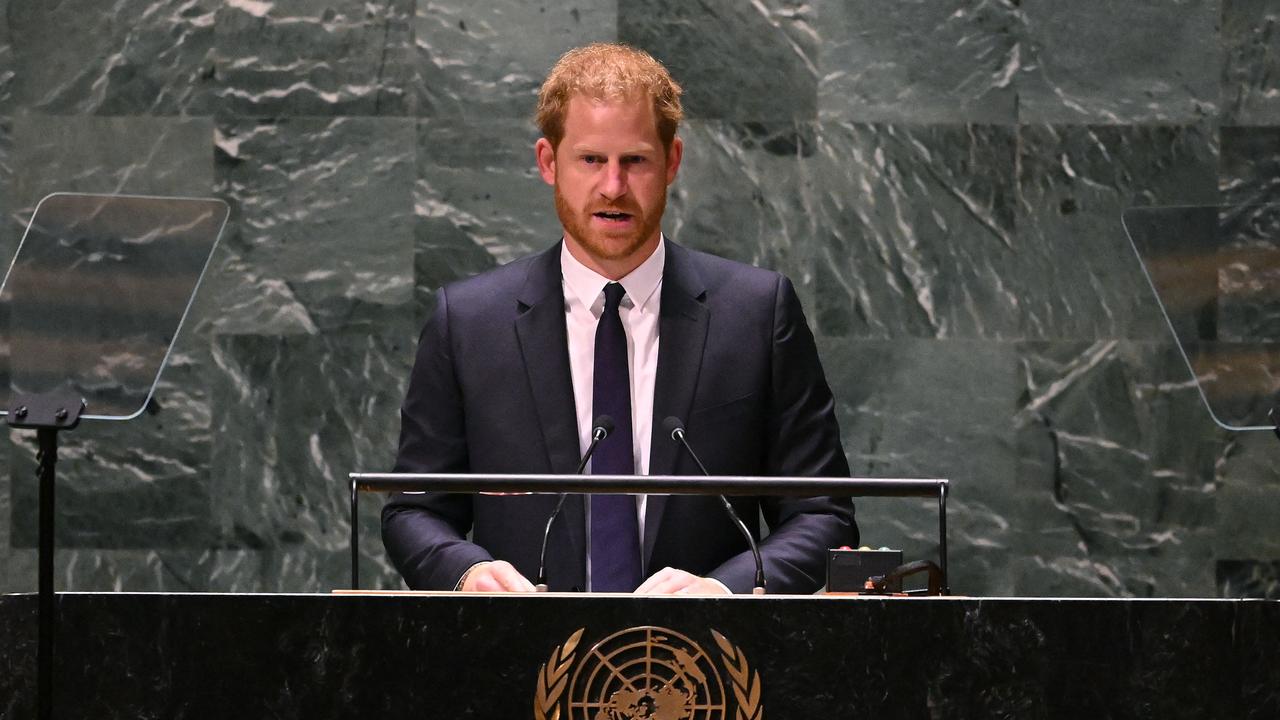
Because as Harry delivered his address, rather than looking out over a sea of hundreds of faces from the 193 member states of the United Nations, the audience that had gathered inside the General Assembly to hear him speak was an embarrassingly sparse one.
Photos taken from the audience looking towards the famed podium show Harry in a dark suit, delivering his remarks with all the seriousness of a man who has tasked himself with saving the world.
But look the other way? From Harry’s perspective out towards the ‘crowd’? The images show the cavernous space was rather mortifyingly sparsely filled. There is no glossing over the fact that the majority of the hundreds of seats were empty.
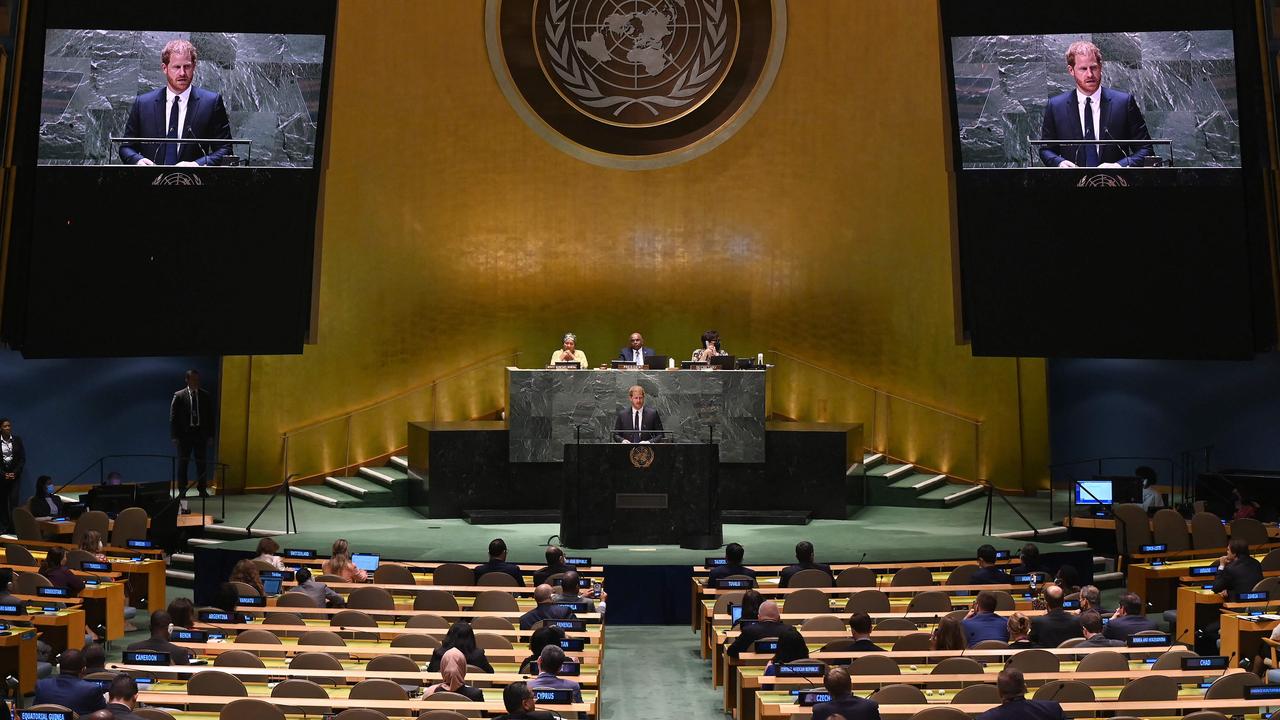
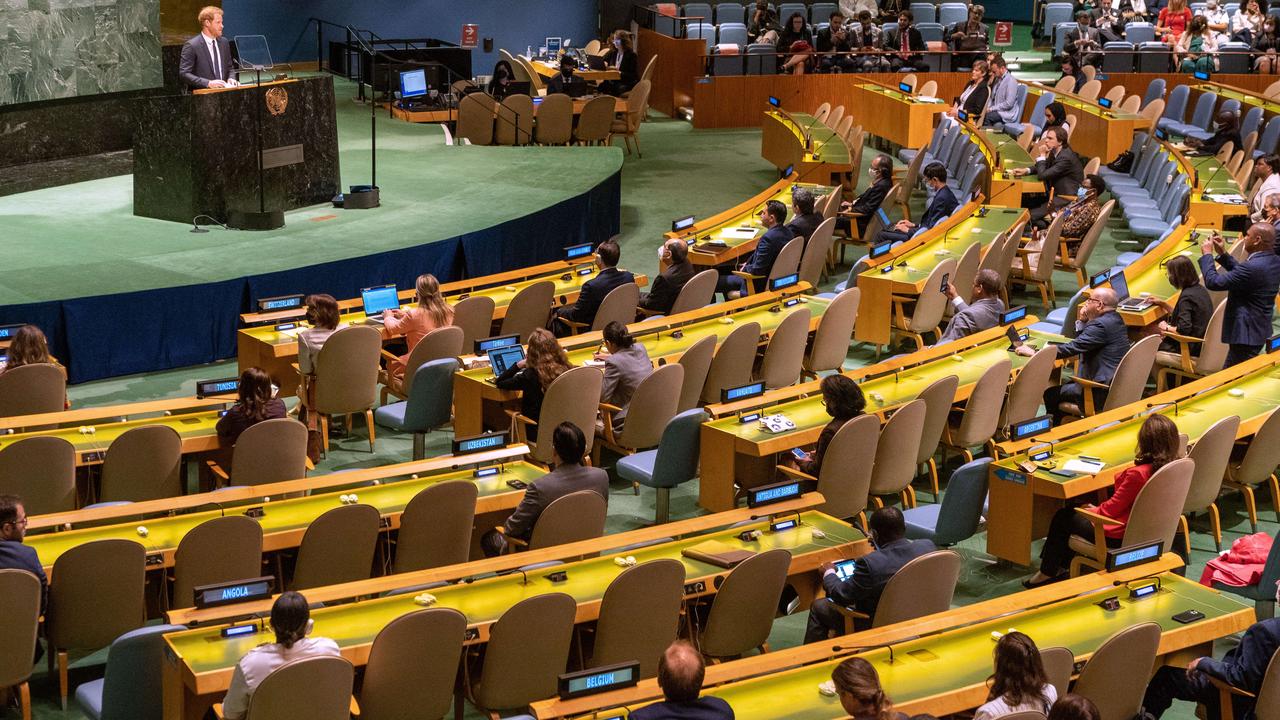
Contrast all of this with events in 2010 when the Queen took to the same stage to deliver only the second address of her reign at the UN to a pretty much full house. The hundreds of delegates also used the occasion to give her a standing ovation.
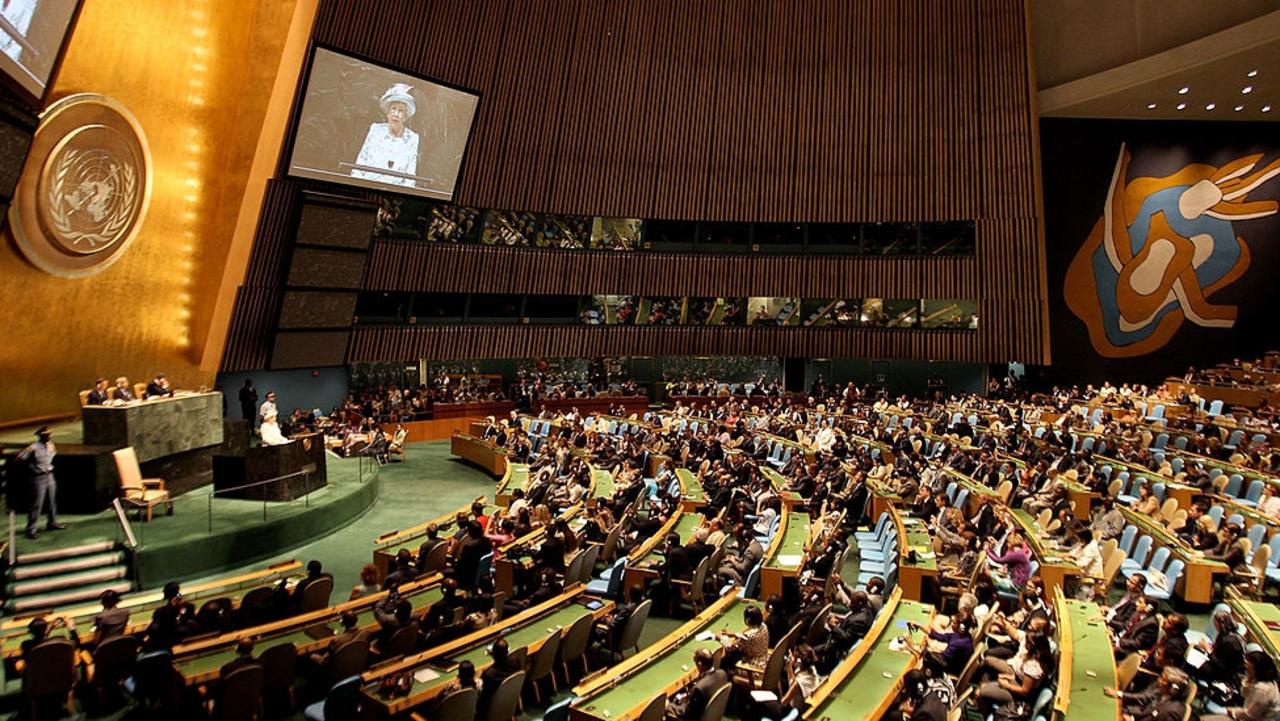
If this outing was meant to solidify Harry and Meghan’s post-Megxit, self-appointed positioning as next gen leaders, the Millennial go-getting, private-jetting vanguard of change, then there must be some very #sadfaces inside Team Sussex right now.
Not only did a rather miserly assemblage of dignitaries turn up to watch Harry deliver his address but overall anyone would be hard-pressed to sell this as a win.
The poor Duke of Sussex is hardly Churchill in the orator stakes.
Here’s the thing: Harry obviously Cares with a capital ‘C’. He Cares hard. He Cares about climate change and Cares helping the hundreds of millions still suffering through the pandemic.
And kudos to him. No question there.
But … what Harry’s UN speech really crystallised was that as far as leaders go, when it comes time to impart his wisdom and thoughts with the world, he just plays the same old hits, like a human jukebox with a very limited number of tracks on offer.
Take, for example, Harry and compassion.
In August 2020, Harry wrote a piece for Fast Company magazine about social media and referenced compassion four times, including “individuals and communities thrive when the frameworks around them are built from compassion” and his belief that we “have to remodel the architecture of our online community in a way defined more by compassion than hate”. (No, I don’t know what either of those sentences mean either.)
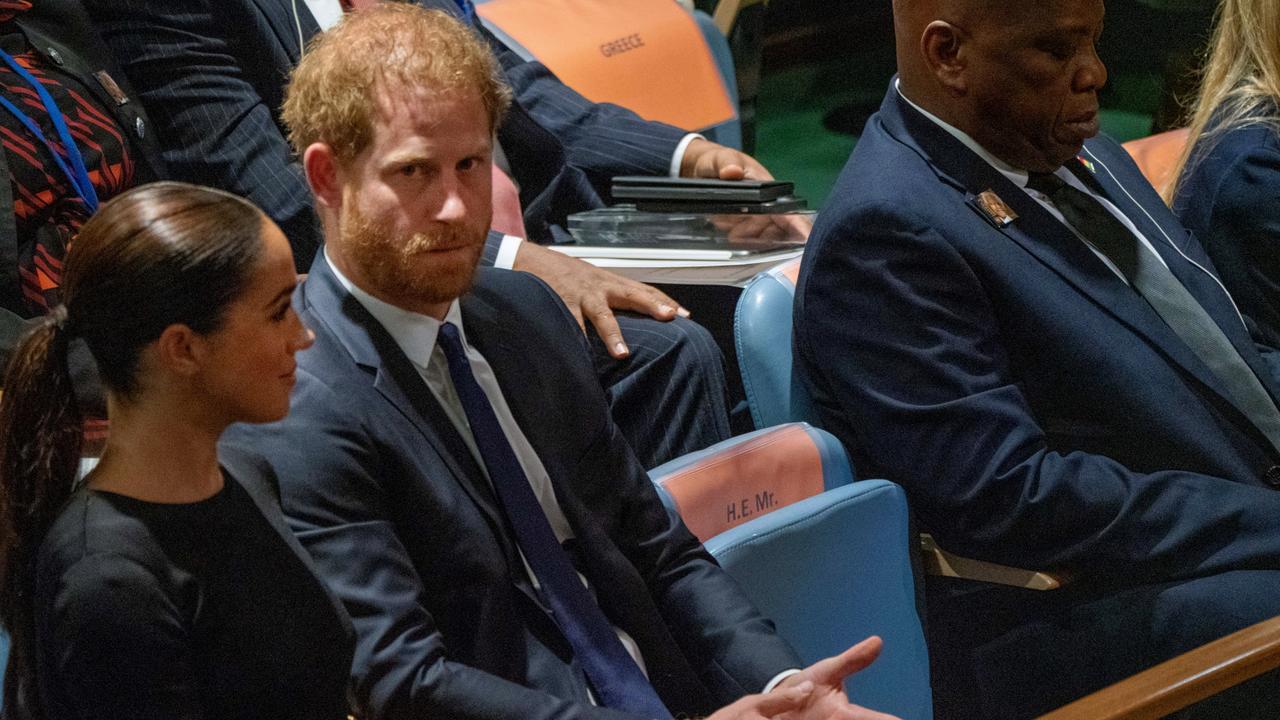
When the Duke and Duchess launched their charity’s website in January 2021, they wrote that they wanted to “unleash the power of compassion to drive systemic cultural change”.
In May 2021, at a Vax Live event, Harry urged the crowd to “look beyond ourselves with empathy and compassion”.
Three months later in July of that year, Harry and Meghan put out a statement via their Archewell website, saying, “We believe that compassion is at the core of all culture and connection in this world … Compassion is at the core of everything we do.”
In April this year, at the opening of the Invictus Games, he spoke about “boundless humility, compassion, and friendship”.
Make no bones – compassion is a great thing but … what does any of this actually mean? It all has about as much heft as someone wearing a sandwich board offering free hugs. It’s a nice sentiment but totally devoid of any substance.
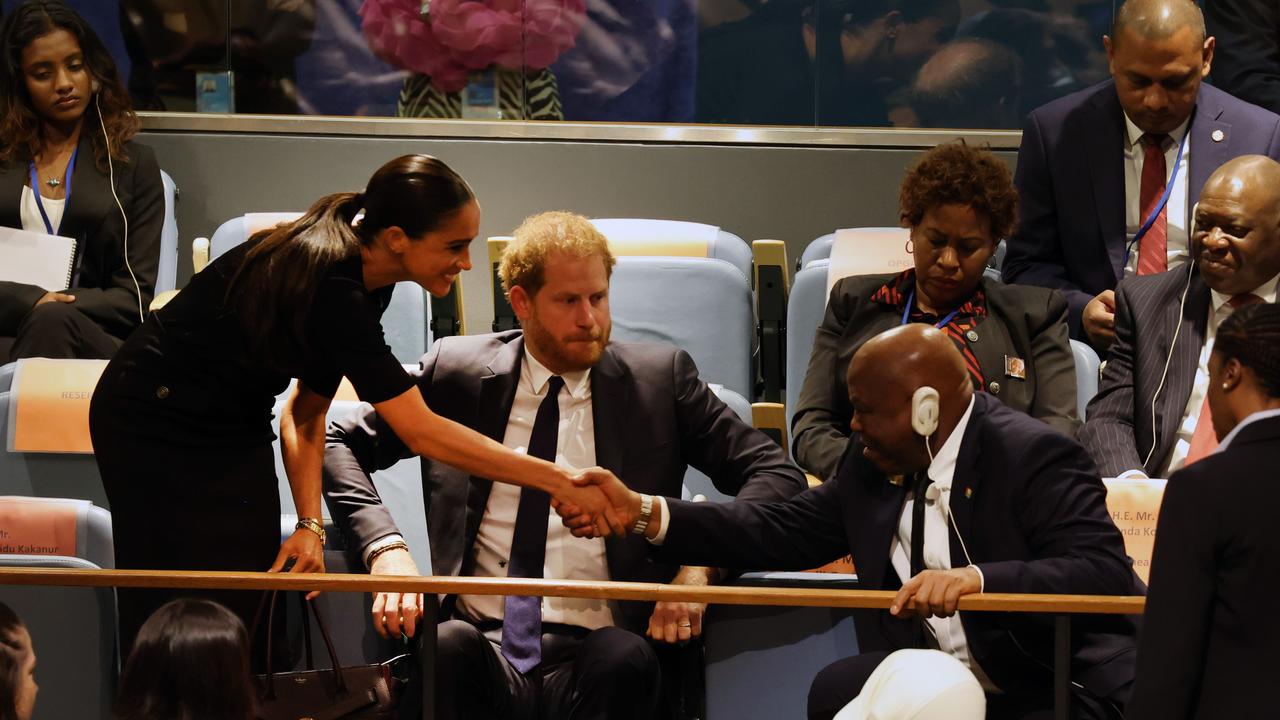
What each of Harry’s speeches seems to confirm is that he is not a person who is regularly troubled by fresh or new ideas.
Largely he gives the same speech time and time again, one that hits the same notes with yawn-inducing repetitiveness: His own personal trauma, the Life-Changing Magic of Meghan and then the usual litany of global crises (climate, mental health, the pandemic and disinformation).
(Let me state here I don’t want to diminish suffering for a second – the boy was 12-years-old when his mother died and he was left to be raised by a family who seem to view hugs with deep suspicion. Harry deserves every bit of happiness.)
But the problem is that when Harry gives a speech, it all does not come across as single-minded conviction or dedication to his chosen causes but as a tired playlist of same-same bleating.
To me, there is not a skerrick of a doubt how deeply Harry wants to do good and leave the world a better place than he found it, for which he deserves a huge amount of credit.
The problem is that someone inside the Sussexes’ Montecitio compound seems to be intent on establishing him as a 21st century statesman who belongs in a Brioni suit on the world stage alongside a few ex-Presidents.
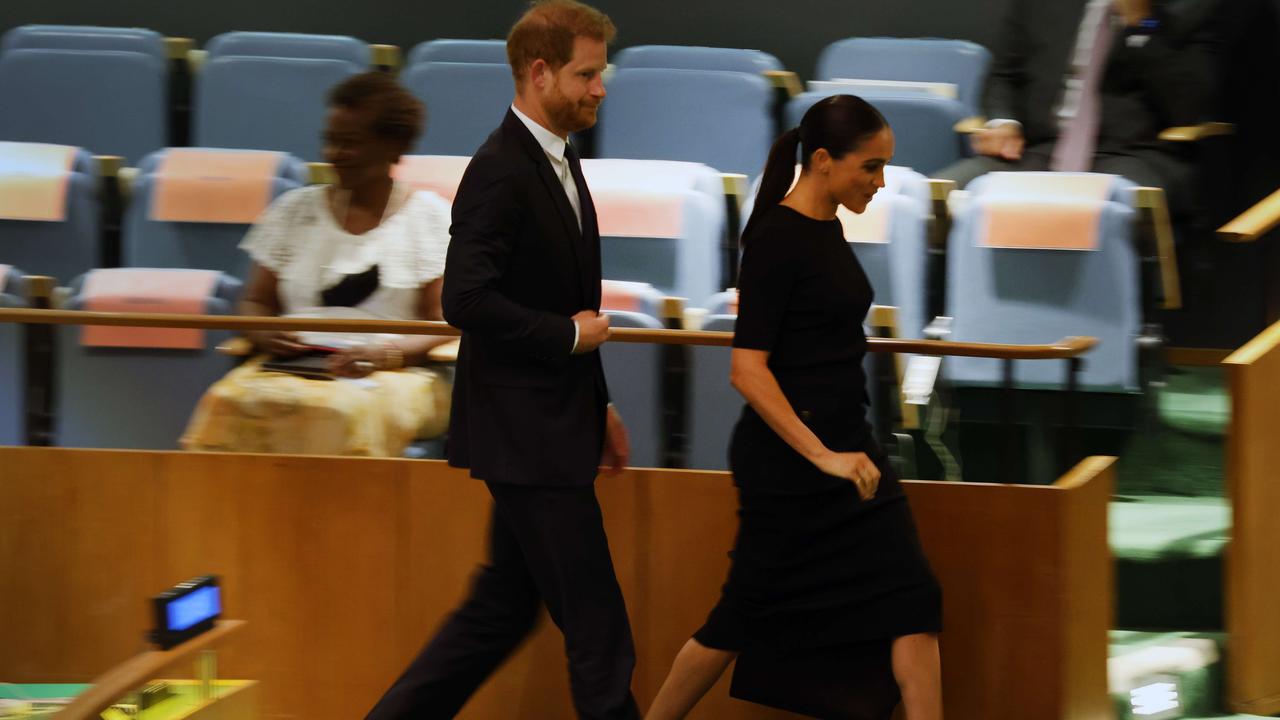
This is an uphill battle they are not going to win.
Unfortunately, Harry is just not a gifted public speaker. When he takes to a lectern, the man is about as rousing as a suburban high school principal forced to minister to bored teenagers.
What Harry is good at, or has in the past been good at, is doing.
In 2006, he co-founded the charity Sentebale with Lesotho’s Prince Seeiso to help children in Lesotho, Botswana and Malawi. In 2013, he attended the Warrior Games in Colorado and then launched his own version, the Invictus Games the following year, an initiative which has only gone from strength to strength.
The same year he also trekked to the south pole and thus brought global attention to the charity Walking with the Wounded.
Give the man a shovel or an organisation to set up or anything involving a high-vis vest and he will do a cracking job. But ask him to front up to the UN, a gig demanding he channel Gandhi via Beyonce, and what you will get is a largely empty chamber.
The Sussex 2.0 model, the charitable paradigm the couple has somewhat futilely been trying to establish since they bailed on royal life, is one that positions them both as rule-breaking, exciting leaders who are poised to effortlessly whip up change any day now! Meghan this may be, but Harry?
The Duke is not his mother or his grandmother or his wife.
If he needs some inspiration of his own then he should not look any further than suffragette Emmeline Pankhurst who, incidentally was arrested outside Buckingham Palace in 1914, and knew a thing or two about fighting to change the world. The motto of the movement she led? “Deeds not words.”
Daniela Elser is a royal expert and a writer with more than 15 years’ experience working with a number of Australia’s leading media titles.